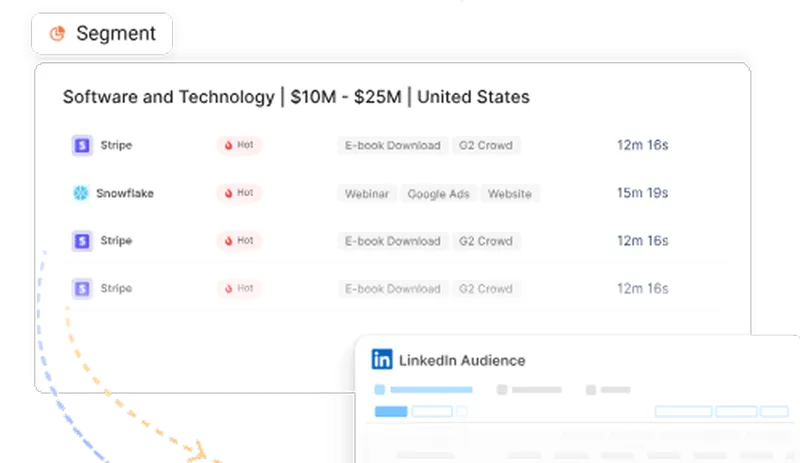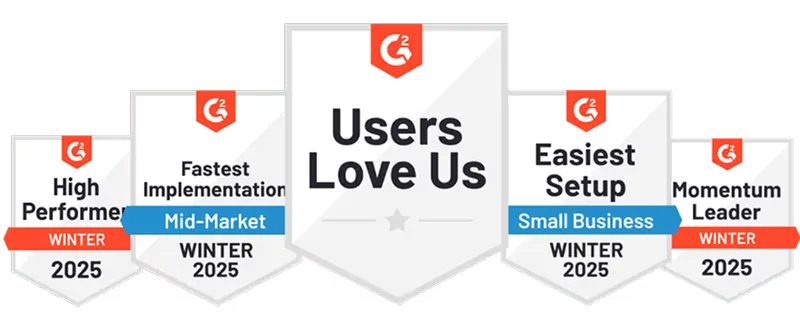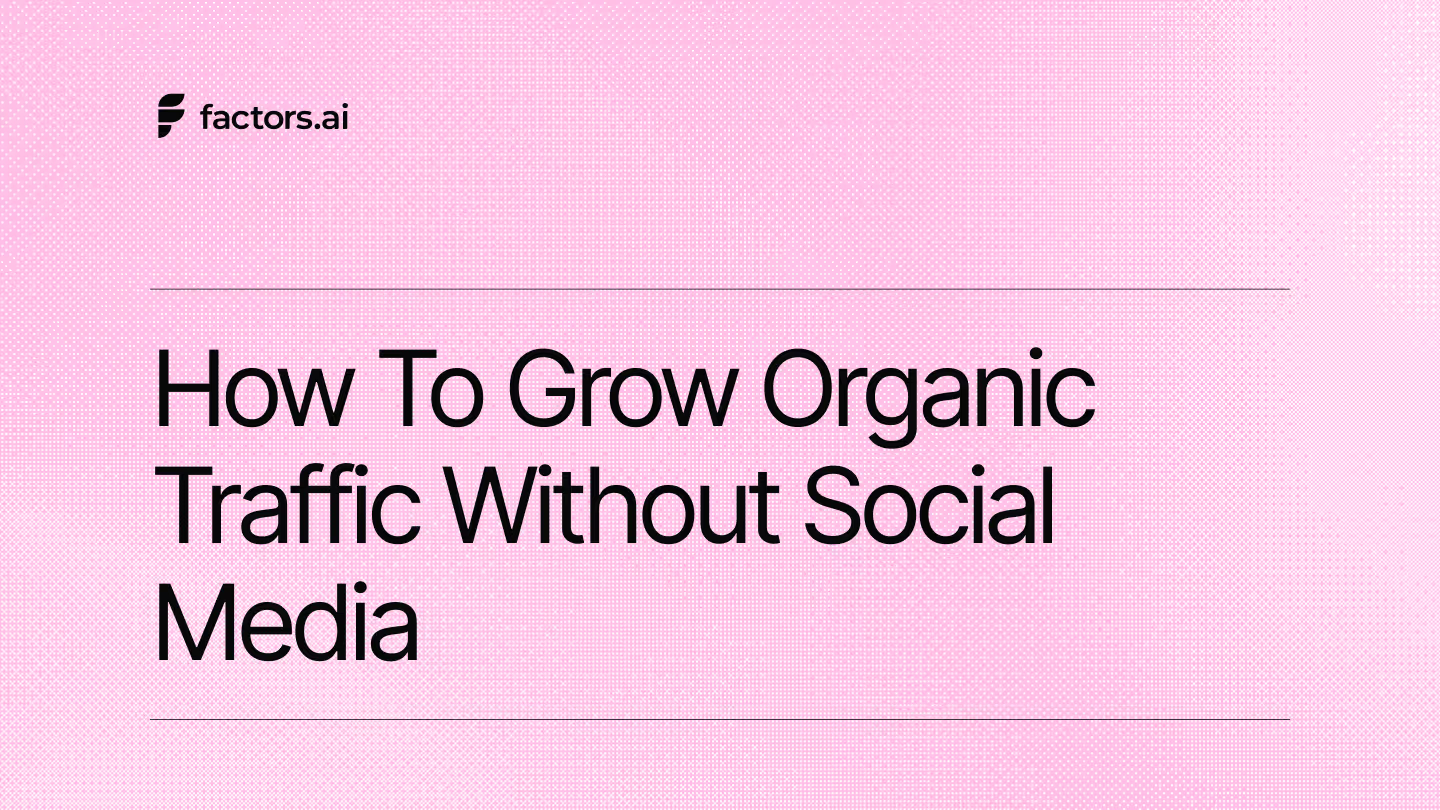Growth Marketing vs Demand Generation: A Comprehensive Analysis
Growth Marketing vs Demand Generation: A Comprehensive Analysis
As marketers, we face a barrage of new terminology, and it can be confusing to truly understand the nuances of each concept.
Two such terms popping up are “Demand Generation” and “Growth Marketing.”. But how would you differentiate between the two?
Here’s a detailed comparison of growth marketing vs demand generation and how you can implement it for your GTM motion ⬇️
TL;DR,
- Growth marketing focuses on long-term, sustainable growth by optimizing the customer lifecycle, prioritizing customer retention, and using data-driven strategies.
- Demand generation aims at immediate demand creation through targeted tactics that drive short-term lead generation and conversions.
- Growth marketing emphasizes long-term relationships, while demand generation focuses on quick results.
- Understanding both strategies is essential for developing effective marketing plans that align with evolving consumer behaviors and business goals.
Definition of Growth Marketing
Growth marketing is a strategic approach focused on achieving long-term sustainable growth for a business. It emphasizes the entire customer lifecycle, from awareness and acquisition to activation, retention, and referral. Unlike traditional marketing, growth marketing prioritizes data-driven strategies and continuous experimentation to optimize results and drive business growth.
Definition of Demand Generation
Demand generation, conversely, is centered around creating immediate demand for products or services. It primarily focuses on short-term lead generation and sales, utilizing targeted marketing tactics to generate interest and drive conversions. Demand generation strategies often involve creating compelling and targeted content to engage potential customers and prompt them to take action.
Importance of Understanding These Concepts in Modern Marketing
Businesses must adapt to changing consumer behaviors and market trends. Understanding growth marketing and demand generation is essential for developing effective marketing strategies that align with business goals and drive tangible results. By comprehending these concepts, businesses can tailor their marketing efforts to meet the evolving needs of their target audience and achieve sustainable growth.
3 Core Concepts of Growth Marketing
Focus on Long-term Sustainable Growth
Growth marketing prioritizes long-term sustainable growth over short-term gains. It involves building a comprehensive customer journey that focuses on nurturing and retaining customers, ultimately maximizing their lifetime value to the business.

Data-driven Strategies
Data is central to growth marketing, guiding decision-making processes and enabling continuous optimization. By leveraging analytics and customer insights, businesses can identify opportunities for growth and tailor their marketing strategies to engage their target audience effectively.
Emphasis on Customer Retention and Lifetime Value
In growth marketing, customer retention and lifetime value are paramount. The focus extends beyond acquiring new customers to nurturing existing ones, fostering long-term relationships, and maximizing the value derived from each customer over time.
3 Core Concepts of Demand Generation
Focus on Short-term Lead Generation and Sales
Demand generation strategies are geared towards generating immediate interest and driving short-term lead generation and sales. The primary objective is to create immediate demand for products or services and prompt potential customers to make a purchase decision.

Targeted Marketing Tactics
Demand generation relies on targeted marketing tactics to reach potential customers at the right time with the right message. This may involve personalized content marketing, social media advertising, and other targeted approaches to capture the attention of the target audience.
Emphasis on Creating Immediate Demand for Products or Services
Unlike growth marketing, demand generation strongly emphasizes creating immediate demand for products or services, driving conversions, and capitalizing on short-term opportunities to generate revenue.
3 Practical Applications of Growth Marketing
Building a Comprehensive Customer Journey
Growth marketing involves mapping a comprehensive customer journey encompassing every stage of the customer lifecycle. By understanding customers' needs and behaviors at each touchpoint, businesses can effectively tailor their marketing efforts to guide prospects through the sales funnel.
Implementing Personalized Marketing Strategies
Personalization is key in growth marketing. It allows businesses to deliver tailored experiences that resonate with individual customers. By leveraging customer data and behavioral insights, businesses can create personalized marketing campaigns that drive engagement and foster long-term loyalty.
Leveraging Analytics and Data for Continuous Improvement
Analytics and data serve as the backbone of growth marketing, enabling businesses to measure their marketing efforts' performance and identify areas for improvement. Businesses can optimize their marketing initiatives by continuously analyzing data and iterating on strategies to achieve sustainable growth.
3 Practical Applications of Demand Generation
Creating Compelling and Targeted Content
Demand generation relies on creating compelling, targeted content that resonates with the target audience. Whether through blog posts, videos, or social media content, businesses must craft messaging that captures attention and prompts action.
Utilizing Various Marketing Channels for Lead Generation
To effectively generate demand, businesses must leverage various marketing channels, including social media, email marketing, search engine optimization, and paid advertising. By diversifying their approach, companies can reach a wider audience and drive interest in their products or services.
Implementing Effective Sales Strategies to Convert Leads into Customers
Demand generation strategies extend beyond lead generation to encompass the conversion of leads into customers. This involves implementing effective sales strategies, nurturing leads through the sales process, and ultimately driving conversions to capitalize on the demand generated.
3 Key Differences Between Growth Marketing and Demand Generation
Timeframe for Results
One key difference between growth marketing and demand generation is the timeframe for results. While demand generation focuses on immediate results and short-term gains, growth marketing prioritizes sustainable growth over time.
Focus on Customer Relationship
Growth marketing strongly emphasizes building and nurturing long-term customer relationships, focusing on customer retention and lifetime value. In contrast, demand generation is more transactional, aiming to create immediate demand and drive quick conversions.
Metrics for Measuring Success
The metrics used to measure success also differ between growth marketing and demand generation. Growth marketing focuses on customer retention, lifetime value, and overall business growth metrics. At the same time, demand generation metrics are as follows:

Wrapping up
Understanding the nuances of growth marketing and demand generation is essential for navigating the complex landscape of modern marketing. By grasping these strategies' core concepts and practical applications, businesses can develop targeted marketing initiatives that align with their goals and drive tangible results. As the marketing landscape continues to evolve, the integration of growth marketing and demand generation will play a crucial role in shaping the future of marketing, enabling businesses to adapt to changing consumer behaviors and achieve sustained growth in an increasingly competitive environment.
See how Factors can 2x your ROI
Boost your LinkedIn ROI in no time using data-driven insights


See Factors in action.
Schedule a personalized demo or sign up to get started for free
LinkedIn Marketing Partner
GDPR & SOC2 Type II
.svg)










